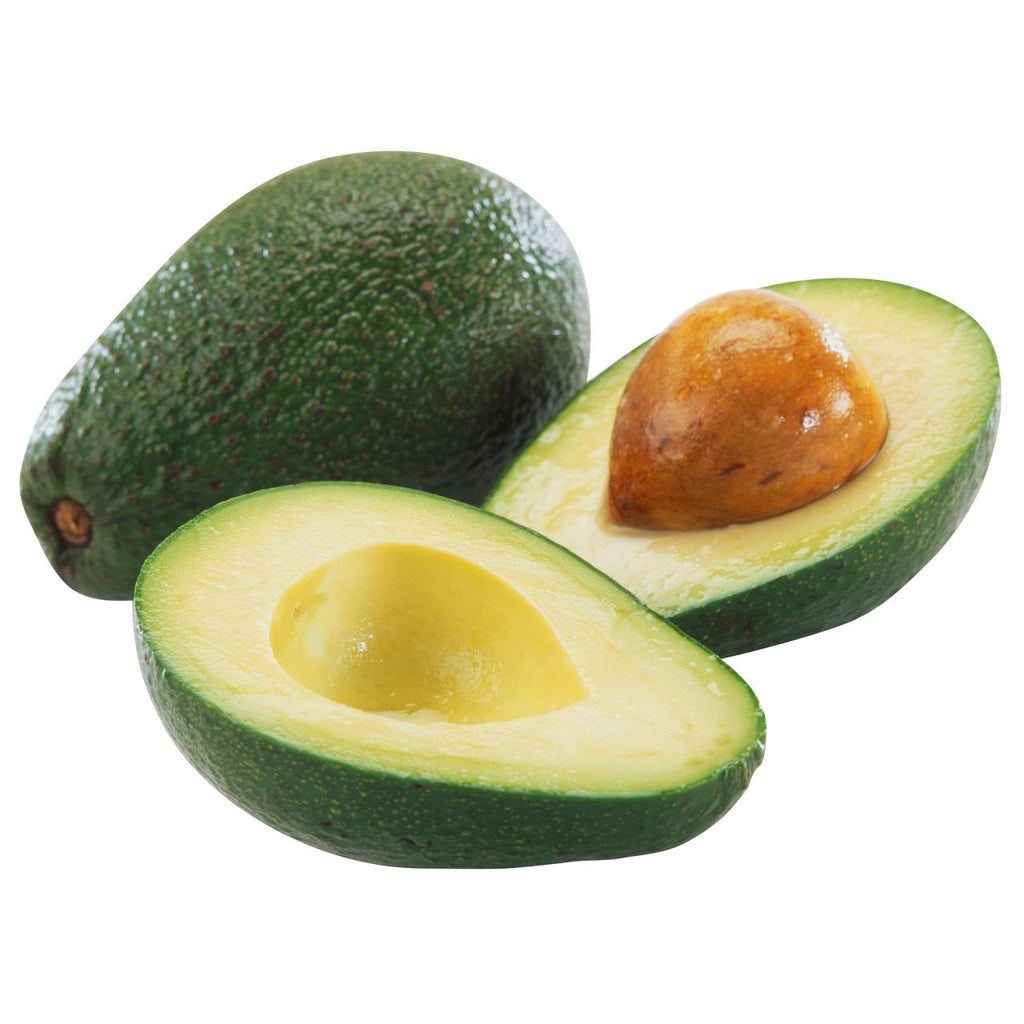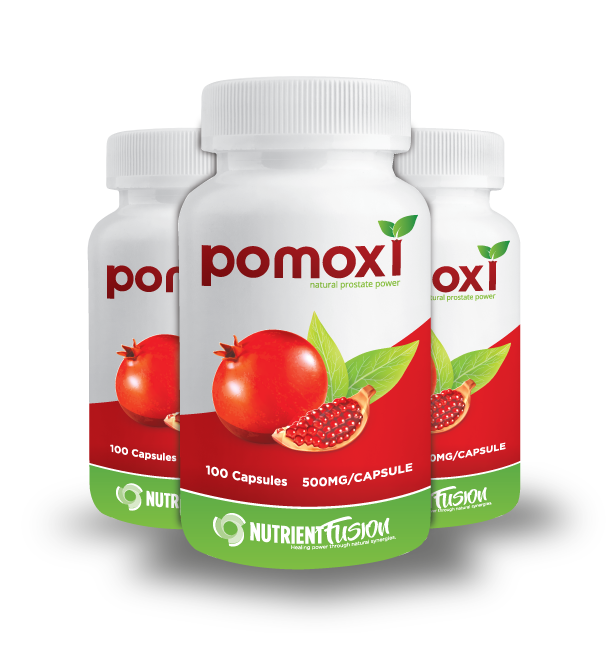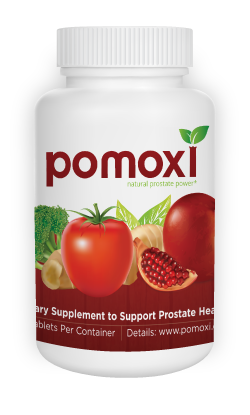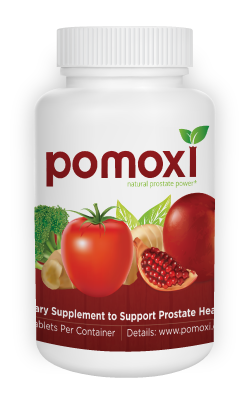Beta-Sitosterol
A healthy form of cholesterol found in nuts, seeds, legumes, and many fruits and vegetables.

Subscribe and Save 15%
BUY NOW
The Science of Beta-Sitosterol
Pomoxi provides Beta-Sitosterol, a natural mixture of plant sterols similar in structure to cholesterol and found in foods that have high fatty acids, such as avocados. Beta-sitosterol is prescribed in many European formulations to support good prostate health. In the U.S., Beta-Sitosterol and other prostate health ingredients found in Pomoxi can be purchased without a prescription. The amount of Beta-Sitosterol present in vegetables and fruits is too small to exert significant health effects.
As most men grow older, their prostate cells overgrow, causing a swelling that obstructs the urethra, the bladder opening, which makes urinary flow slower and the bladder emptying time longer. This also results in a weak urinary stream and uncomfortable urinary symptoms such as increased nighttime or daytime urgency to urinate. (1)
Prostate enlargement risk increases with age – men aged 50 to 60 have a 50% chance of prostate enlargement, which increases to an 80% risk in men over 80. (2)
Beta Sitosterol’s effects on prostate health was studied in 519 men from four placebo-controlled, double-blind trials lasting between 4 to 26 weeks. Beta sitosterol improved healthy urinary function and healthy flow measures without affecting the size of the prostate. (3)
In a six-month clinical study of men taking Beta-Sitosterol, researchers used the International Prostate Symptom Score and quality-of-life index, the maximum urinary flow rate and postvoid residual urine tests. They found that Beta-sitosterol had a residual health effect that lasted for three months after the men stopped taking it. (4)
During an 18-month follow-up of the same study, “the beneficial effects of beta-sitosterol treatment recorded in the 6-month double-blind trial were maintained for 18 months”. (5) In other words, there was a nine-month residual health effect after the men stopped taking it.
A Beta-Sitosterol study in 177 patients with benign prostate enlargement was conducted. The men received 130 mg of Beta-Sitosterol each day and were monitored for over six months. Measurements of the International Prostate Symptom Score, urinary flow, and residual urine in the bladder after voiding were recorded. (6)
The International Prostate Symptom Scores showed a statistically significant improvement in prostate health. (6)
Since then, the exact mechanisms of how Beta-Sitosterol achieves its health effects have been discovered. Beta-Sitosterol helps restore energy-production in the mitochondria, the energy-producing powerhouse of cells. (7)
Beta-Sitosterol’s health effects go beyond being a healthy prostate support nutrient, however. Beta-Sitosterol given orally stimulates white blood cell production and has been recommended “as an immunomodulatory vitamin combination.” (8)
Recent studies show that Beta-Sitosterol crosses the blood-brain barrier and supports healthy brain (neural) stem cell division and proliferation, supporting healthy brain cell numbers. (9, 10)
What is Beta-Sitosterol?
While lesser known than cholesterol, beta-sitosterol happens to be quite similar in structure, and found in oily, fatty plant-based foods.
The only difference: beta-sitosterols are good for you. In fact, they’re not only able to help maintain healthy levels of LDL (or "bad") cholesterol in spite of their similar structure, but they can be strong supporters for prostate health as well.
Science continues to unveil the important role they play in supporting prostate health.
Supplementing your diet with foods rich in beta-sitosterols can be of enormous benefit to those wishing to maintain prostate health. However, the higher concentrations you find in supplement form prove to be much more effective for those who are lacking this important phytonutrient in their diets.
What Foods Contain Beta-Sitosterols?
Since they are so similar to cholesterols, you can expect to find these phytonutrients in oily plant foods.
What separates them from those so-called "bad" cholesterols however, is that beta-sitosterols have been shown to be healthy for you. Not only that, but they are found in healthy vegetables rather than less healthy meats and other fatty products.
Foods that contain beta-sitosterols:
- Almonds
- Avocadoes
- Berries
- Brassica/cruciferous vegetables (kale, broccoli, cabbage)
- Fava beans
- Lentils
- Pistachios
- Sesame seeds
- Unrefined plant oils (avocado, corn, canola, rapeseed)
- Walnuts
Generally speaking, these healthy phytonutrients can be found in most nuts, seeds, and legumes, along with some vegetables and fruits.
Plant-based cooking oils of many kinds are also a great source, though they must be unrefined oils to have any significant benefit.
Supplement versus Food Intake
Unfortunately, the average Western diet is severely lacking in these foods rich in beta-sitosterols.
In one study comparing their consumption to Asian countries (specifically Japan), Westerners only consumed 80 mg of beta-sitosterols per day on average, as opposed to the average 400 mg a day seen in the typical Eastern diet.
Since Westerners may struggle with incorporating beta-sitosterol-rich foods into their diets, a supplement containing the nutrient could be much more effective for supporting prostate health in Western countries.
Beta-Sitosterol’s Benefits
According to studies, beta-sitosterols help balance hormones related to prostate health. However, beta-sitosterols extend their effectiveness to promoting testicular health as well.
Last but certainly not least, beta-sitosterols are potent antioxidants that have anti-aging effects by reducing the damage of harmful free radicals.
Working Together with Cholesterol
The most fascinating aspects of all is this phytonutrient’s ability to work hand-in-hand with cholesterol.
Since beta-sitosterols are so chemically similar to cholesterol, they have been shown to compete for the same absorption sites in the digestive system.
Getting these plant compounds into your diet through supplementation can, in effect, outcompete cholesterol. On the other hand, the presence of at least some cholesterol – particularly HDL (or "good") cholesterols can actually boost the prostate-supporting effects of beta-sitosterols. In a way, these phytonutrients may not only help support prostate health, but help maintain healthy cholesterol levels as well.
Support Prostate, Cholesterol, and More
Talk to your doctor about the beneficial possibilities of supplementing with beta-sitosterols – a healthy component of many veggies, nuts, and seeds.
It may not only be a powerful ally for prostate health, but it can also help maintain healthy cholesterol, and overall well-being.
References
1. Glynn RJ, Campion EW, Bouchard GR, Silbert JE. The development of benign prostatic hyperplasia among volunteers in the Normative Aging Study. Am J Epidemiol. 1985 Jan;121 (1):78-90.
2. Homma Y, Imajo C, Takahashi S, Kawabe K, Aso Y. Urinary symptoms and urodynamics in a normal elderly population. Scand J Urol Nephrol Suppl. 1994; 157:27-30.
3. Wilt, TJ, Macdonald, R, Ishani, A. Beta-sitosterol for the treatment of benign prostatic hyperplasia: a systematic review. BJU Int. 1999 Jun; 83(9):976-83.
4. Wilt T, Ishani A, MacDonald R, Stark G, Mulrow C, Lau J. Beta-sitosterols for benign prostatic hyperplasia. Cochrane Database Syst Rev. 2000;(2):CD001043.
5. Berges, RR, Kassen, A, Senge, T. Treatment of symptomatic benign prostatic hyperplasia with beta-sitosterol: an 18-month follow-up. BJU Int. 2000 May;85(7):842-6.
6. Klippel KF, Hiltl DM, Schipp B. A multicentric, placebo-controlled, double-blind clinical trial of beta-sitosterol (phytosterol) for the treatment of benign prostatic hyperplasia. German BPH-Phyto Study group. Br J Urol. 1997 Sep;80(3):427-32.
7. Shi, C.; Wu, F.; Xu, J. Incorporation of β-sitosterol into mitochondrial membrane enhances mitochondrial function by promoting inner mitochondrial membrane fluidity. J. Bioenerg. Biomembr. 2013, 45, 301–305.
8. Bouic PJD, Etsebeth S, Liebenberg RW, Albrecht CF, Pegel K, Van Jaarsveld PP. Beta-sitosterol and beta-sitosterol glucoside stimulate human peripheral blood lymphocyte proliferation: implications for their use as an immunomodulatory vitamin combination. International Journal of Immunopharmacology. 1996;18(12):693–700.
9. Hamedi, A.; Ghanbari, A.; Saeidi, V.; Razavipour, R.; Azari, H. Effects of β-sitosterol oral administration on the proliferation and differentiation of neural stem cells. J. Functional Foods 2014, 8, 252–258.
10. Bin-Sayeed, MS, Karim, SMR, Sharmin, T, Morshed, MM. Critical Analysis on Characterization, Systemic Effect, and Therapeutic Potential of Beta-Sitosterol: A Plant-Derived Orphan Phytosterol. Medicines (Basel) Bin. 2016 Nov 15;3(4). pii: E29.


